
IN THIS ISSUE
Performance Day Review 13th April 2025
Rodney Smith reports on the ABC Series The Piano Open Music Academy
Pat Wilson On the Voices
Kerin Bailey Jazzin’ Around Lead Sheet Interpretation 6




Performance Day Review 13th April 2025
Rodney Smith reports on the ABC Series The Piano Open Music Academy
Pat Wilson On the Voices
Kerin Bailey Jazzin’ Around Lead Sheet Interpretation 6


Dear MTASA Members and Friends,
We’re proud to be presenting a series of exciting events in the coming months, and we warmly invite you to join us in celebrating and participating in these valuable opportunities!
Our Winter Professional Development Day (July 20th) will feature the fascinating and multifaceted keynote presenter, Amanda Handel (Sydney).
Amanda’s opening presentation will explore the powerful interplay between the conscious and unconscious mind in the process of music-making— and how this understanding can inform effective teaching strategies and support the overall well-being of musicians.
She will also lead a masterclass featuring her own works from the AMEB syllabus (Stalactite, Dreamboat Blues, The Seduction of Andalucia), offering insights into her compositional and pedagogical approach from her unique perspective as a teacher, composer, and performer.
At this event, we are also pleased to launch an exciting new collaboration with the SAMii management software platform for our members, and to welcome the team from Wizard Tone Studios. They will walk us through their facilities, recording and educational services, and special offerings tailored especially to our MTASA community.
In August, we will celebrate the 95th birthday of the Music Teachers’ Association with a special reception for members, graciously hosted by one of our esteemed patrons, Her Excellency the Honourable Frances Adamson AC, Governor of South Australia, and Mr Bunten, at Government House. We would be delighted if you could RSVP (more information to follow soon) and join us in recognising the strength and significance of our Association—built and sustained through the dedication of our community for nearly a century.
We hope you enjoy this edition of SA Music Teacher, and we encourage you to stay tuned for more details about upcoming members’ events, including the second Concert Performance Day and Competitions Day scheduled for the second half of the year.
With warm regards,
Rosanne Hammer President, MTASA
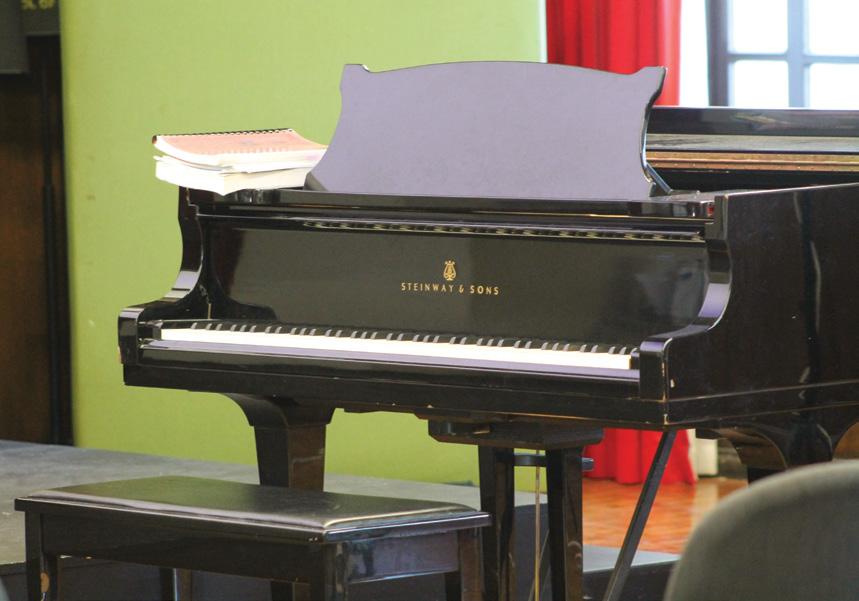
33 No 1
PATRONS : Her Excellency the Honourable Frances Adamson AC, Governor of South Australia, Mr Rod Bunten, and Emeritus Professor Dr David Lockett A.M.
PRESIDENT : Rosanne Hammer
VICE-PRESIDENT : Rodney Smith, Wendy Heiligenberg
SECRETARY : Lynne Franks
TREASURER : Samantha Penny
AUDITOR : Australian Independent Audit Services
CURRENT COUNCIL : Rosanne Hammer (President - New 2025)
Rodney Smith (Vice President),
Wendy Heiligenberg (Vice President)
Lynne Franks (Secretary - New 2025)
Sam Penny (treasurer), Pete Barter - Chief Mischief Maker and doer of things.
Yong Cheong Lye, Jessica Liu, Emmy Zhou
Melody Men, Elaine Feng (New 2025)
Lishan Xiao (New 2025), Selena Yang (New 2025)
Lynne Gong (New 2025)
EDITOR : Ada Maria Wycinka
LAYOUT: : Sectrix
MEMBERSHIP ENQUIRIES to the Secretary –
PO Box 4, RUNDLE MALL, SA 5000
Mobile: 0402 575 219 • E-mail: info@mtasa.com.au
ADVERTISING – Please contact the Secretary
Please see the MEMBER information page for the Advertising Price List.
Contributions to SA Music Teacher are most welcome.
All items to be included must reach the Editor (info@mtasa.com.au) no later than September 15th.
SOME CONTRIBUTIONS GUIDELINES
All text is to be submitted to the Editor for review.
Italics and inverted commas for quotations – text is to be either in Italics or inside inverted commas, not both.
Single inverted commas to be used; double inverted commas only inside single inverted commas.
Due to multiple changes in our editing team, it has been necessary to combine the Autumn/Winter editions. We apologise for this and hope to resume our normal regular editions in future.
WELCOME FROM THE PRESIDENT
Rosanne Hammer
COMING MTASA EVENTS
MEMBER INFORMATION
REQUIRED PROFESSIONAL LEARNING FOR FULL MEMBERS OF MTASA
Working With Children Check (WWCC)
MTASA Membership Notes
MTASA Advisory Service
JAZZIN’ AROUND
Lead Sheet Interpretatin 6 Chord construction and consolidation by Kerin Bailey
BAGATELLE by Pat Wilson
ON THE VOICES
Get a real job! by Pat Wilson
PEDAGOGY MATTERS
ABC’S THE PIANO.
Rodney Smith.
EVENT DESCRIPTION
keynote presentation by Amanda Handel
BIGGER, BETTER, BOLDER BRAINS by Samantha Penny
Reflections on a Master Class with Dr. Dylan Henderson By Ariel Guo
“Oh, so it has a piano part?”: Flying the Flag for the Examination Collaborative Pianist By David G. Miller
MTASA PERFORMANCE
DAY 13th April 2025
Wendy Heiligenberg and Rodney Smith
Concert Performance Day.
Session 3. Sunday April 13th 2025. By Rodney Smith.
Open Music Academy at the University of Adelaide By Wendy Heiligenberg

Sunday, 20th July, 2025
Winter Professional Learning Day
Venue Time Ticket Australian Piano Warehouse 1:00-5:15 pm Via Humanitix : : :
Monday, 11th August 2025
MTASA’s 95th Birthday Celebration
Venue Time Government House 5:00pm : :
August 2025
Concert Performance Day #2
STAY TUNED
Sunday 26th October, 2025
MTASA Competition Day
Reimann-Robinson Scholarship and Norman Sellick Prize
MTASA MEMBERSHIP FEES
The following teaching rates are recommended to members by the MTASA Council for 2025.
Full members of the Music Teachers’ Association of South Australia may use the letters MMTA (member of Music Teachers’ Association) as a post-nominal while they are financial members. Interstate Music Teachers Associations are also encouraging their members to use this or a similar post-nominal.
Lynne Gong (Full member)
Kerry Sampson (Full member)
Alison Marton (Student member)...
Angus Perkins (Student member)
Gordon Richter (Student member)
Paul Jager (Full member)
Mingzhou Liu (Student member)
Sunday 16th November, 2025
MTASA AGM
Venue Time Ticket Details Australian Piano Warehouse 4:30 - 9.00pm TBC TBC : : : :

MTASA has introduced a Professional Learning scheme for Full members. This commenced on July 1, 2019 when Full members began accumulating their seven hours of Professional Development. The scheme is designed to underpin and enhance MTASA’s established reputation for the professional excellence of its members, ensuring its standards are fully compliant with current educational expectations. These are clearly outlined in the Australian Professional Standards for Teachers (visit www.aitsl.edu.au/teach/standards) and similar documents.
From July 1, 2020 onwards Full members, when renewing their membership, will be asked to tick a box declaring that they have undertaken at least seven hours of Professional Learning during the previous twelve months.
The following examples are provided to give general guidance for Full members about Professional Learning that would be acceptable to MTASA.
These examples represent only a small sample of all the possibilities available to Full members. Generally Full members should feel comfortable about their own choices but in case of doubt you are welcome to contact the Secretary for further advice (info@mtasa.com.au).
Improved music teaching should be a major factor in all activities that Full members wish to count towards their MTASA Professional Learning.
MTASA will undertake random checks from time to time to ensure the system is working properly. So, on very rare occasions a Full member may receive a request from the Secretary for information about their Professional Learning. In such instances you may submit evidence such as certificates, programs, diary notes, recordings and so forth.
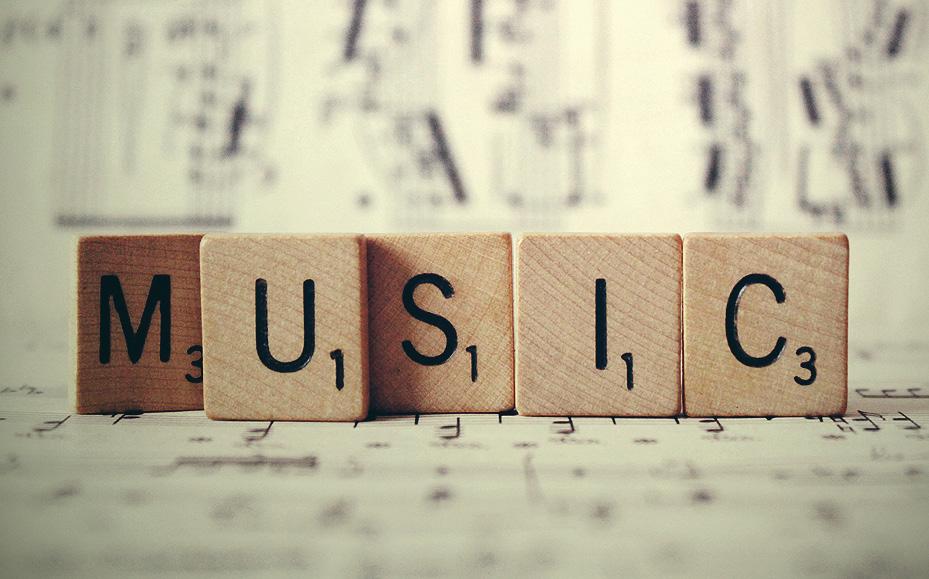

Examples of Professional Learning that would be acceptable to MTASA:
1. Online.
Attending a webinar or similar event; undertaking an online e-learning course.
2. Face-to-Face.
Attending a conference, workshop, masterclass or lecture.
3. Formal Study.
Undertaking a qualification or part-qualification delivered by a recognised institution.
4. Personal Research.
Studying books, journals, articles, musical scores, musical theory, analysis, etc., which lead to an example of improved music pedagogy and/or pupil performance.
Self-conducted research leading to a presentation, masterclass or workshop at a conference.
Composing an educational piece of music that motivates a group of pupils.
5. Team Research.
A joint project with others that achieves particular improvements in a training ensemble.
Joint creation of music teaching materials that improve learning in a group of pupils.
Remember! These are only a few amongst many possibilities. MTASA is a community of creatives. You are encouraged to be creative in your Professional Development!

As a member of Educators SA, MTASA can offer benefits to its members. Here are some offers:
Andersons Solicitors offer MTASA members:
• 10% off legal services, in ALL areas.
• Free initial phone conversation with a lawyer.
When contacting Andersons Solicitors tell them you are a member of MTASA, which is a member organisation of Educators SA (CEASA). Visit the website at www.andersons.com.au/.
Credit Union SA has a range of education only offers. Visit the website at www.creditunionsa.com. au/community/education-communitybanking-benefits/ for more information.


Have you fulfilled the requirements for Full Membership? Student members are reminded that Student membership is restricted to four years after which time it is expected that they would be eligible for another membership category, either Full Membership by Tertiary Study or Full Membership by RPL (Recognition of Prior Learning and Experience).
Student members who are ready to upgrade their membership are invited to submit an application form to the Secretary together with the required supporting documents. Criteria can be downloaded from the MTASA website (www.mtasa.com.au) or obtained from the Secretary (info@mtasa.com.au).
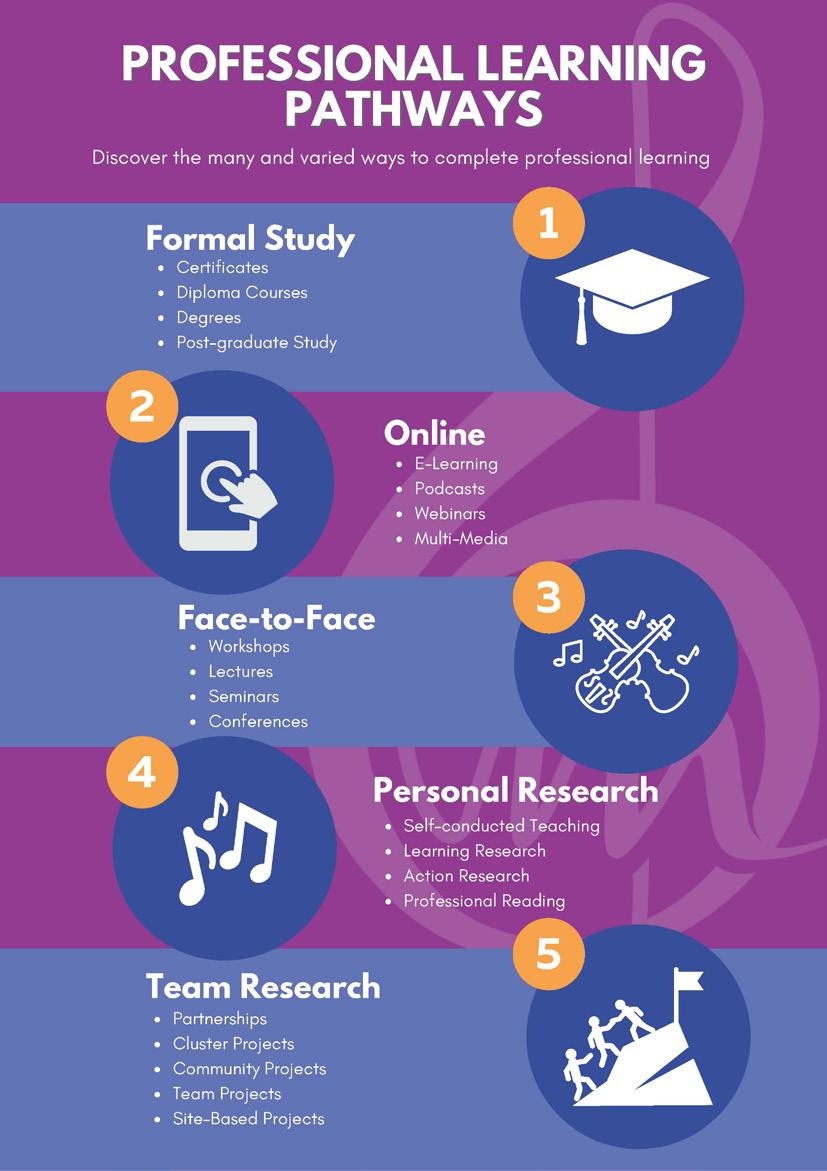

New Legislation regarding Child Protection was introduced with effect from September 1, 2019. A ‘Police Check’ is now known as a ‘Working With Children Check’ (WWCC). The Working With Children Check is the most comprehensive check that exists. Anyone found guilty of breaching this legislation can be fined up to $120,000.
People working or volunteering with children in South Australia must, by law, have a Working With Children Check. A DHS/DCSI child-related check will be recognised as a Working With Children Check until it expires.
People need a Working With Children Check if they are in a ‘prescribed position’. This means people who are in paid or volunteering roles where it is reasonably foreseeable that they will work with children; run or manage a business where the employees or volunteers work with children; are employed to provide preschool, primary or secondary education to a child.
A Working With Children Check is needed for all schools (Government, Catholic and Independent).
For further information go to www.screening. sa.gov.au/types-of-check/new-working-withchildren-checks.

Enthusiastic volunteers are needed to help with various jobs at MTASA events. Tasks include setting up the venue, helping with registration at the check in table, ushering, assisting performers, helping with meals, and packing up afterwards.
It is a great way to network and a volunteering certificate will be provided, which will enhance your CV!
For more information, please e-mail the Secretary at info@mtasa.com.au.
In recent years each issue of SA Music Teacher has included an article about music teaching in a country region of South Australia. There are some regions that haven’t been visited yet. If you haven’t done so please write something – it doesn’t need to be very long – and also include a photo. If you have written something before you are welcome to send an update. E-mail the Secretary at info@mtasa.com.au.

Visit mtasa.com.au/index.php/members/becomea-member/ to join MTASA.
Current Full, Student or Associate Members are not required to submit any supporting documentation to continue their MTASA membership. Anyone applying for Full Membership (either Tertiary Level Qualification and Study or Recognition of Prior Learning and Experience) or Student Membership for the first time must fulfil all of the requirements listed and submit the appropriate supporting documentation. Associate Membership is no longer being offered but those who were Associate Members on September 24, 2017, can continue their membership provided they remain as financial members. Full Membership (Recognition of Prior Learning and Experience) has replaced General Membership.
MTASA Members are always encouraged to write to the Secretary about any concerns that they may have. The MTASA Council will consider your request.
To be listed in the ‘The Directory of Teachers of Music’ on the MTASA website as a teacher of theory/musicianship applicants for Full or Student membership must supply evidence of having completed studies in this field to at least AMEB 5th Grade theory/musicianship standard or equivalent. Full, Student or Associate MTASA members wishing to have theory and/or musicianship included in their Directory listing should send copies of the relevant certificates to the Secretary (info@mtasa.com.au).
The Editor is always looking for things to include in SA Music Teacher. Articles can be about any music related topic. If you would like to write an article this is your invitation! A helpful hint, a comment, a joke, a poem, a cartoon, etc. … please e-mail them to the Secretary at info@mtasa.com.au.
ADVERTISE WITH SA MUSIC TEACHER
SIZE
x 297mm)
We invite organisations to partner with MTASA on our website. Benefits include advertising via a clickable link and two free tickets to our events for an annual fee of just $100. Please go to our website.
Announcing MTASA Partners! CLASSIFIED AD
MTASA Members, free. Non-members, $17.
Please contact the Secretary (info@mtasa.com.au) about advertising.

You’ve hit a problem in your professional life as a music educator.
Feeling isolated in your role as a music educator? You’re not alone.
The Music Teachers’ Advisory Service (MTAS) is here to offer the support and guidance you need. Whether you’re concerned about a student’s progress, your studio’s business model, or navigating institutional regulations, we’re here to help. When you encounter a professional challenge as a music educator, your first step is to reach out to the Secretary of MTASA. Based on your query, you will be referred to the most suitable MTASA Council member who will then contact you to provide the necessary advice and support.
Affordable Advisory
While MTASA Council members offer their expertise free of charge to support their peers, the Music Teachers’ Advisory Service has an $80:00 hourly fee. This rate is comparable to a single lesson fee, and most issues are resolved within an hour. Please note, this service is not intended for specific instrumental expertise.
Book an advisory Consultant. Supporting you in your private music teaching situation.
Depending on the nature of your query, you will be referred to the MTASA Council member most suitable to advise you… and they will get in touch with you.
FIND OUT MORE at MTASA.com.au
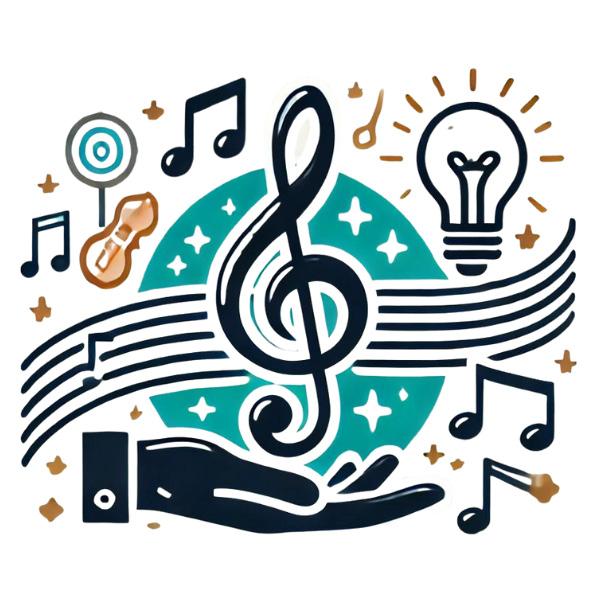

by Kerin Bailey
In my previous lead sheet articles I have assumed readers are familiar with the harmonisation of the major scale in 7th chords. In case not – here it is in Ex.1:

This is simply the more familiar triads built in 3rds on each scale degree, with the addition of the 7th (from the bass). I believe this is the easiest way to teach this system – a major or minor triad with the added major or minor 7th on top. The exception is the VII chord; this triad is diminished, with added minor 7th – see below.
Note – in any major key:
I and IV chords are major 7ths (maj7) – major triad with added major 7th from the bass note.
II, III and VI are minor 7ths (m7) – minor triad with added minor 7th (from bass).
V is the dominant 7th (G7 in C) – major triad with added minor 7th. (In my experience a mystery to many pianists/musicians!)
VII is the minor 7 flat 5 (Bm7b5 in C) – diminished triad with added minor 7th. The common chord symbol is m7b5 – minor 7 b5 or minor 7 diminished 5th, also known as half diminished. Fully diminished requires the 7th to be diminished too – in the key of C major the 7th would be Ab. The diminished 7th chord occurs on the 7th degree of the harmonic minor scale – as any grade 6-8 student would know from the arpeggio requirement (but maybe not understand!)
So the major scale contains four of the five main chord qualities: major, dominant, minor and half diminished. (Major and minor triads can also have an added (major) 6th in lieu of 7th, e.g. C6, Cm6; note: the quality is still major or minor. The fifth quality is the diminished 7th.
Ex.2: the five chord qualities:
Tip: to work out any 7th chord go through these 5 steps: start with maj7 and lower 7, 3, 5 & 7 again. NB; this material covers 90% of jazz standard/pop tunes in major and minor keys.

A preparatory step for 7th chords may be triads and their inversions – ex.3.
I teach this triad exercise to all my students, gradually introducing new keys. I insist on the same fingering for each key, regardless of key signature. This is either 531 for RH root position and 2nd inversion, 521 for 1st inversion. LH is 531 for R and 1st, 521 for 2nd inv. The number 2 above stave is RH reminder, and below is LH. (This fingering makes it easier to accommodate the 7th chords in closed position – Ex.4). NB – I also insist on practising these exercises with a feel for the time signatures.
Once the triads are comfortable, move on to practising the scale-tone 7th chords (Ex.1), gradually mastering all 12 keys, ascending and descending, memorising the chords and their scale numbers. The more keys covered the easier it gets! Aim to learn one new key a week, even a month.
Concurrent with this could be the 5 chord qualities, root position and inversions. Ex.4 is major (1) and dominant (2). Also practise arpeggios on these chords – root position adequate at this stage.
Ex.5 is the ubiquitous I VI II V progression (root position), and bars 2/3 and 5/6 the important II V I progression. Ex.5a is smoother voice leading with some inversions:
Ex.6 is a little exercise in Lead Sheet 2 style. Use close position RH chord voicings – familiarity with inversions necessary! A rough rule of mine for starters is RH chords on beats 1 and 3.
LH - simply use the root of the chord in 1/2 or 1/4 notes (ending) – or the dotted 1/4_1/8th pattern. Sight read this directly from the music. (My piece Triadic Excursion from Jazzin’ Around 2 is a good introduction for this style.)

Ex.7 is an excerpt from Miss Miles (Jazzin’ Around 1). This is a more sophisticated example of my Lead Sheet 2 style (Winter ’22), in which the RH plays the melody/close position chords, LH plays the bass line. Note: bar 13, RH chords are scaled down to 3 notes for this tricky passage, LH moves with the changing chords; in15, full 7th chords – Gm9 is also Bbmaj7, and C11 is Gm7/C (beat 3+), so the progression could be considered IV III II I (F6), with the bass line in contrary motion; open position G13 (bar 14), and E13 (16) –the F melody note is a b9 (Lead Sheet #5 – Open Voicings, last edition – Summer 25); The syncopation and articulation add to the complexity!
Chord progressions: Em11 A7 | Dm7 is II V I in D minor, Dm7 G13 is II V in C major, Gm9 C11 | F6 is II V I in F – see Ex. 5 above.

Finally, a more challenging example, the bridge of Laughter in the Rain.
Note: chord progression – all I VI II V; repeated chords where the hand is already in position; L/R syncopation across the bar-line; LH – a more elaborate form of the dotted 1/4_1/8th pattern, and 7ths, 10ths (Lead Sheet #4 Spring 24).

Next time I’ll cover lead sheet accompanying, where this chord knowledge will be invaluable.
© 2025 Kerin Bailey; Miss Miles © 1982 Kerin Bailey https://kerinbailey.com.au/music-shop/jazzin-around-1-piano/ Miss Miles https://youtu.be/8L9F3oX1dnM Laughter in the Rain, Neil Sedaka/Phil Cody, Arr. KB https://www.sheetmusicplus.com/en/product/laughter-in-the-rain-22050044.html
© 1974, 1975 (Renewed 2002, 2003) EMI SOSAHA MUSIC INC., EMI JEMAXAL MUSIC INC., SONGS OF SJL-RSL MUSIC CO., SJL-RSL SONGS COMPANY and SONY/ATV MUSIC PUBLISHING LLC All Rights on behalf of SONY/ATV MUSIC PUBLISHING LLC

Bagatelle by Pat Wilson
This regular column is a light-hearted way to get to know MTASA Council members, those hard-working people who help to run the Music Teachers’ Association of SA. [Pat Wilson]

BAGATELLE (Fr. ‘a trifle’). A short piece of music in a light style. Probably first used by Beethoven in his ‘Seven Bagatelles,’ op. 33. The form of the bagatelle is entirely at the discretion of the composer. It is short and not too serious in character. By Pat H. Wilson
Autumn Spotlight is on YONG CHEONG LYE
Yong Cheong
[Pronunciation hint for English-speakers = say “Chee-yong”]
{Chinese pronunciation: Lài Yong Chāng]
Do your names have meanings in Chinese? Yes, they certainly do!
“Yong” means brave “Cheong” means prosperous or flourishing “Lye” means highly reliable
Where were you born? Malacca City (Malay: Bandaraya Melaka), the capital city of the state of Malacca in Malaysia. A popular tourist destination, the city is situated 144 km. southeast of Kuala Lumpur and has a population of around 579,000.
What did you look like as a child?
This is a picture of me and my late sister when we were little.
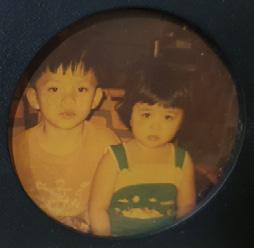
What’s your first language? Chinese And your second language? Malay And your third language? English
Were your parents musical? Neither my mother nor my late father played music. My father thoroughly enjoyed singing (with a Music Minus One accompaniment) on occasions when people gathered. His pitch was good; his rhythm was not!
My father was a businessman for most of his working life, running a goldsmithing shop and then a grocery shop/minimart during my childhood. My mother helped him in these businesses, as well as being a housewife. By the time I was doing my undergraduate degree at the University of Malaya, my father had semi-retired, and he and my mother helped my uncle with his restaurants.

When did you start learning to play music? I have a sister who is seven years older than me. She was sent to organ lessons. I was so fascinated by what she was learning to do that I asked my parents to send me to piano lessons. I started learning when I was 3½ years old. I wish I could remember the name of that very first teacher. I stayed with her until I was seven years old, when I transferred to May Leen Khong, a wonderful piano teacher who continued to teach me until I was in my early twenties. With her I gained ATCL at 16, DipABRSM at 18, and LTCL when I was 23 years old.
Did you have a favourite piano piece you enjoyed playing when you were quite young?
I loved playing Für Elise. I chose to learn it myself, rather than have my teacher assign it to me. I even improvised to make the piece more interesting – though perhaps that’s not quite in the spirit of classical music!
What sort of a musician are you?
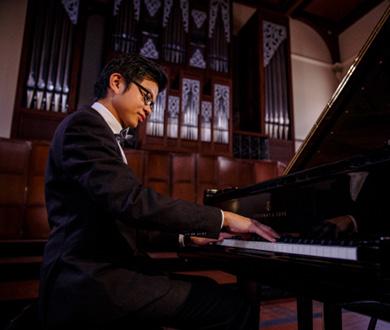
I love improvising. I have perfect pitch. This can be both a blessing and a curse, especially when instruments are not in tune. I have great difficulty with electronic pianos which have a transposing function. If I play a note, I hate being surprised by not hearing the pitch I expect! I like to teach my piano students to transpose their pieces themselves, then play them in different keys. It helps them know the music even better.
What’s your primary instrument? Piano. Where did you study for your first university degree?
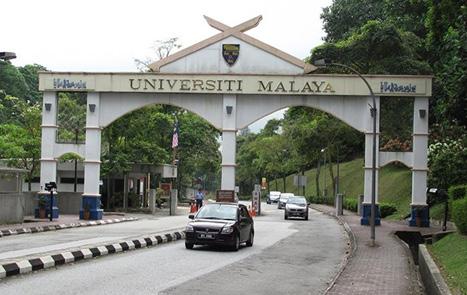
Universiti Malaya, in Kuala Lumpur, where I gained a Degree of Bachelor of Science majoring in statistics in 2008.
Did you still keep your piano studies up while you were doing your degree? I continued practising the piano while I was at university. I used to play in the choir and band, both of which involved piano in some way. I only resumed formal piano studies after graduating, working towards my LTCL with May Leen Khong.
When did you start teaching piano? In 2005, while I was in my first year of study at university in Kuala Lumpur.
Did you ever think of coming to Australia? Around 2012, I was on a working holiday in New Zealand and took an extended break to travel. My flight home to Kuala Lumpur included stoops in Melbourne and Adelaide. I spent a very short time in Adelaide and was deeply impressed by the city. I remember lying back on the grassy bank of the River Torrens along Victoria Drive, opposite the University of Adelaide, and daydreaming about one day studying there. What made you come to Adelaide to live? Carl Crossin and Stephen Whittington came to Kuala Lumpur and, when they auditioned me, they told me about the tertiary music education offered at the University of Adelaide. They offered me the opportunity to the Graduate Diploma of Music (Performance and Pedagogy) and Masters of Music (Performance and Pedagogy) at the university there. I came to Adelaide in 2015 with my wife. Without her constant support, I wouldn’t be here.

How about a picture of your favourite instrument?
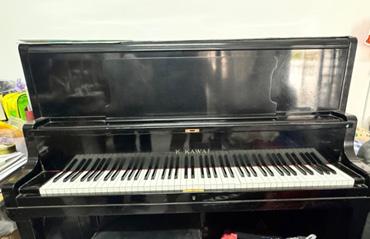
This Kawai upright piano was bought for me by my father. Although neither of my parents was strongly musical, they were very supportive of my journey in music. This same piano now stands in my home. Although my father passed away in 2019, this piano is a daily reminder of his love and support.
Can you name any formative teachers of yours?
May Leen Khong
Rodney Smith
Debra Andreacchio
Eleonora Sivan
So what do you look like now?
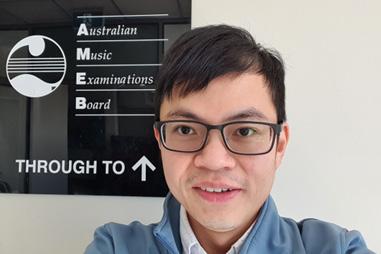
AMEB examiner
Where do you do most of your teaching these days? In my own school in Stepney, established in 2017.
It’s called Rondo Music School. My wife is a great help in running the school’s administration work. Do you still take lessons with a teacher? I certainly do. I think it’s vital to keep your professional skills sharp and up-to-date. I enjoy having regular
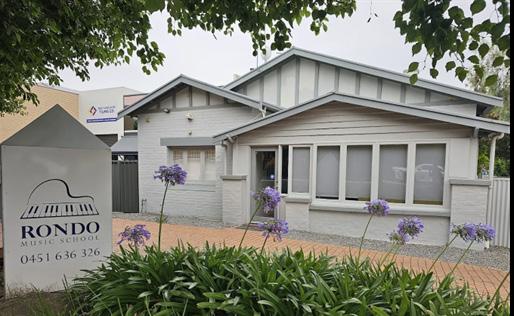
lessons with Debra Andreacchio, supplemented by occasional sessions with a remarkable piano pedagogue, Eleanora Sivan. (Debra has been learning from Eleonora for over 40 years, and her doctoral dissertation was on The Piano Pedagogical Approach of Eleonora Sivan.) These lessons help me be a better teacher.
Name a composer whose works you love to teach? Mozart. I make sure all my students learn at least one Mozart piece.
Any personal goals you’d like to talk about? I’m especially passionate about supporting other teachers, especially those who are just starting out. When I came to Adelaide to pursue my Masters at the University of Adelaide, I earned money by teaching piano at Novar Music Learning Centre. The founder and general manager, Carly McDonald, was a great inspiration to me – not only in teaching but also in developing my skills. She supported me throughout my studies, and the teaching practice at Novar has shaped the way I approach teaching today. Now, I’d like to give back by helping emerging teachers.


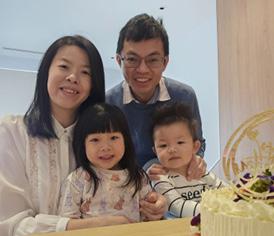
My wife, Yee Ruh Siew, and our two children –Avery (5 years old) and Ethan (3 years old).
Who’s the main cook in your household? My wife is. She makes a great variety of soups and cooks many home dishes like chicken curry and steamed fish. As for me, my cooking is mostly limited to spaghetti, fried rice and noodle soup.
Any pets at your place? No.
Any hobbies? Being the father of two young children while running our music school means that I have very little leisure time. But I love travelling with my family – visiting different places and countries, and experiencing local culture together. I’d also say that my volunteering work with the Music Teachers’ Association, which includes being a member of the Council, is a sort of a hobby for me. Likewise, my work with the Adelaide Eisteddfod ,and being on the committee for the Australian Piano Pedagogy Conference.

I’m really looking forward to the next Conference which will be in Adelaide in 2026.
For sport, I play badminton every week.
What about your children’s hobbies? Our daughter Avery is currently learning piano and violin. She also sings for fun, dances and does visual arts. Little Ethan loves to dance. He responds well to rhythm.

Ethan enjoys the books we read to him. His current favourite is “First Look & Find with the Paw Patrol”. Is there a final thought you’d like to share? I would like to thank my wife, Yee Ruh, from the bottom of my heart. She has always supported me, not only in running the music school but also in many other things I’ve been involved in. While I’m busy, she takes great care of our two children and helps me in so many ways. I’m truly grateful for everything she has done.
Pat H. Wilson

by Pat Wilson
OK, singers: let’s start with some statistics. If you look up Jobs and Skills Australia, a national government website devoted to detailed information about occupations and their industry profiles, the entry for Singers is spare but interesting. It’s worth having a look at. [https://www.jobsandskills. gov.au/data/occupation-and-industry-profiles/ occupations/211214-singers] If we are to believe this site, there are 590 employed professional singers in Australia. Only 5.1% of these are in South Australia. New South Wales has the most, at 35.4%, followed by Victoria (25.6%) and Queensland (22.4%). Over half (53%) of these professional singers identify as female. A bar chart displays “Highest level of education attainment” for Singers compared with All Occupations. In all three of the highest areas (Post-graduate/Graduate Diploma or Graduate Certificate; Bachelor degree; Advanced Diploma/Diploma), the percentage of singers was consistently higher than the average of the education levels of all professions. The Bachelor degree number was particularly high.
From this pile of stats, the take-home messages for me are (1) singing is a job, and (2) you study so you can do it. However, I suspect not everyone agrees.
Remember 2016? When the government presided over a mighty shakeup in Australia’s VET (national education and training) sector resulting in nearly 60 creative arts diplomas being ruled ineligible for student loans. Subject areas affected included such topics such as dance, photography, acting and music. The Federal Education Minister of the day described creative arts training as “lifestyle choices”. He explained that training in these subject areas would not lead to employment and therefore they should not be supported by the government. Among those music industry courses viewed as ineligible for federal assistance and student loans were diplomas and advanced diplomas in music, music theatre, screen and media, and live production and technical services.
Nine years later, Australia’s arts landscape looks a lot different. Yet music educators at all levels are frequently confronted with that same old “lifestyle choice” belief on which Canberra made pronouncements way back in 2016. We teachers mostly get asked questions by parents or the primary caregivers of our students. Sometimes
students themselves want to talk to us. The big fat question: Is singing a Real Job?
The parent chat usually goes like this – ”It’s lovely that [student’s name] is having singing lessons. I know they enjoy singing. Yes, they got great results in their last exam. But does singing set them up to get a good ATAR which will allow them to get into [Medicine? Law? Dentistry? Computer science? Finance? ]. So can we please stop singing lessons after Year 10, so they can concentrate on their professional career path. After all, why do a music degree? Where does it get you?”
Because this column is all about singers and singing, here’s a list some singers who did at least one course of music at tertiary level in order to reach their star status today. You may have heard of some of them…
POP - Lady Gaga (American singer-songwriter and actress) studied at Institute of Musical Arts (now known as Tisch School of the Arts), New York.
OPERA - Jessye Norman (American operatic soprano and recitalist) studied at Oberlin Conservatory of Music (Oberlin, Ohio), and then at Hochschule für Musik, Freiburg, Germany.
ROCK - Iva Davies (Australian singer-songwriter, composer, and frontman of Icehouse) studied at Sydney Conservatorium.
JAZZ – Ella Fitzgerald (American singer, songwriter and composer) studied at New England Conservatory of Music
POP - Elton John (British singer-songwriter and pianist) studied at the Royal Academy of Music, London.
MUSIC THEATRE – Hugh Jackman (Australian actor and singer) studied at The Actors’ Centre, Sydney and then at the Western Australian Academy of Performing Arts at Edith Cowan University, Perth. (Interestingly, Our Hugh did the Acting course at WAAPA, not the music theatre one!)
OPERA - Renee Fleming (American soprano and actress) studied at Eastman School of Music, won a Fulbright Scholarship to study in Germany, and then went to The Juilliard School, New York.

MUSIC THEATRE - Idina Menzel (American actress and singer) studied at New York University.
POP - Annie Lennox (Scottish singer-songwriter, activist and flautist) studied at the Royal Academy of Music, London.
MUSIC THEATRE - Lin-Manuel Miranda (American singer, songwriter and actor) studied at Wesleyan University
OPERA / RECITALS - Dame Felicity Lott (Soprano) studied at the Royal Academy of Music, London.
POP - Alicia Keys (American singer, songwriter and classically trained pianist) studied at the Professional Performing Arts School, Manhattan.
JAZZ / R’n’B - Jacob Collier (English singer, songwriter & multi-instrumentalist) studied at the Royal Academy of Music, London
POP / ROCK - Tori Amos (American singer, songwriter, pianist) studied at the Juilliard School, New York.
I find it’s sometimes useful to drop a name or two. Yes, folk - Singing is a Real Job.
Pat H. Wilson
• 109cm
• Excellent condition
• 7 years old
• Mahogany
• $900
• Not negotiable
• Heavily discounted
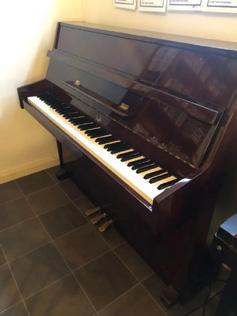
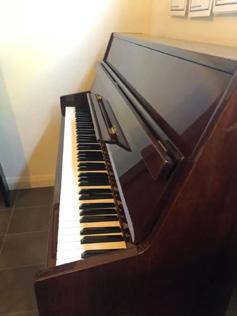

ABC’s The Piano.
Rodney Smith.
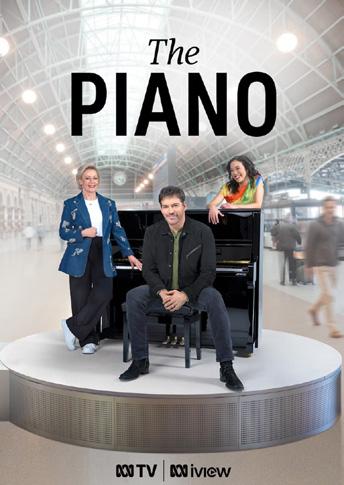
The first episode of the ABC TV Series The Piano, celebrating Piano Day, March 29th, 2025, aired on May 4th and all six episodes are available for streaming on ABC iview. Hosted by Amanda Keller, each episode featured a succession of players covering all ages and walks of life playing an upright piano in public settings such as railway stations and markets to an appreciative audience of passersby that predictably gathers round to see what was going on. Each player performed a short piece of music that had special meaning for them. The styles varied from classical to rock, the standards of playing were variable, some items featured singer-songwriters, but one common factor united them. They all appeared to be everyday Aussies, but they were not, because without exception they loved music and the piano that had enabled them to express their feelings in a deeply personal way. Jazz pianist Harry Connick, Jr. and classical pianist Andrea Lam provided onscreen commentary. To build on the interest generated from this series,
the ABC, Piano+ and The Piano have delivered donated pop-up pianos to up to 20 towns across Australia. For example, in Adelaide Sonya and Jules from ABC’s Breakfast on the Road were at Adelaide Central Market on May 16th for Come Play the Piano, wheeling out a piano and inviting people to play.
That’s a great deal of activity celebrating the piano and its players. Instrumental teachers and especially piano teachers need to take note of this series. It provides a fascinating snapshot of where our students can end up and what they look like following their own path in music.
So, what can teachers learn from the series? Are our lessons fit for purpose? As we know, there is generally a big drop out amongst our students after three or four years. Do we work with that perspective in mind? Should we ensure our lessons for beginners and elementary players have already given them some tools for self-sufficiency after three or four years when so many drop out?
There certainly was a broad variety of pianism and style on show. True to form the piano – a oneperson orchestra – provided the accompaniment for vocal numbers, orchestral arrangements, selfcomposed arrangements, original compositions, notated jazz, freely arranged popular music, complex compositions, the simplest possible music and much more. How are we preparing our students for such a broad variety of choices in the few years we teach them? Do we simply follow the most convenient tutor or exam syllabus and hope for the best because we can’t possibly know where they are headed musically?
I suggest programs like The Piano demonstrate that we have a responsibility to make students as aware as possible of these infinite future possibilities and that possessing a certificate doesn’t guarantee their musical survival. Knowing the notes, using an appropriate technique, understanding about expression and shape, and reading music need to all be kept at the forefront of students’ minds of course. But improvising, accompanying, arranging, composing, singing and listening all have their place too.
Indeed, a large proportion of performances in the series didn’t include printed music. Were they playing from memory? Perhaps, but they seemed really at home without the music copy in front of them. Might they possibly have been playing “by ear”? If so, were they improvising? They had clearly prepared a short piece, and they all stuck to the time schedule. Could some have learned the music by listening to recordings? Quite possibly. Did they

have facility in playing “by ear”. It would seem so, as they didn’t appear concerned if some passages maybe didn’t go the way they originally intended. So, do we need to include improvising and playing by ear in those early lessons? Yes, The Piano demonstrated the clear need for students to be aware such things are commonly practised. And do we need to try to include a broad variety of styles from the start? Judging by the Piano, yes. There’s a need for students to understand that all good music has value whatever its style and origins.
All the performers in The Piano showed a real love of music and the piano. What can teachers learn from that? Certainly, only a small proportion of our students show an innate affection for music from the start and most need to have that affection nurtured. The one-to-one lesson is peculiar among learning modes in that it lacks the natural interest
in a subject generated through the camaraderie of, and interaction with peers. A larger responsibility for any atmosphere and enthusiasm engendered therefore rests with the teacher who needs to show real love of music themself, constantly. And that’s made even more difficult when a plethora of end-on, half-hour one-to-one lessons burden the teacher’s capacity for energy and vitality.
So how can we future proof our students’ musical development while they are with us. It seems an almost impossible task to cram everything into a half-hour lesson but educators like Paul Harris with his Simultaneous Learning approach have shown that much more can be achieved in that timeframe than is commonly the case. In addition, and in connection with music itself, the Beatles perhaps had it right when they proclaimed All You Need is Love.
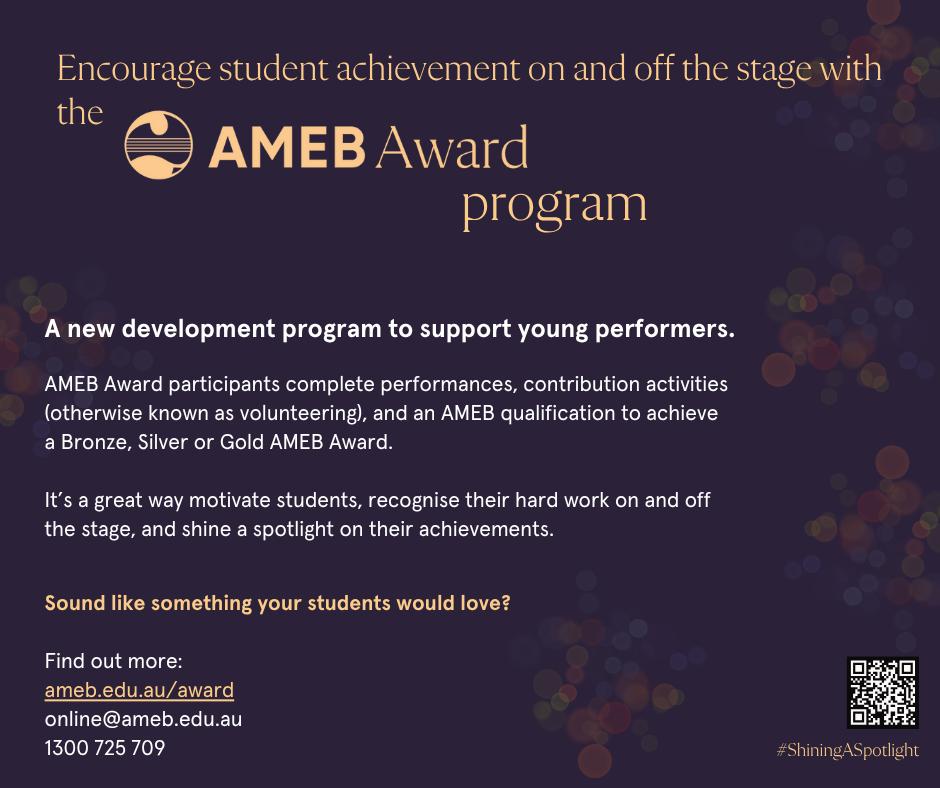

REGISTRATIONS OPEN FROM 12.30PM ON THE DAY
The Mystery of the Musical Mind
— keynote presentation by Amanda Handel
The Mystery of the Musical Mind explores the interplay of the conscious and subconscious minds in our neurology, showing how we can deliberately utilise their distinguishing features for highly effective learning and rewarding performance. Providing anecdotes from her studio, Amanda emphasises the importance of crafting language wisely to penetrate the subconscious mind with clear intention. Delving into the power and impact of metaphor, she shows how lasting emotional and physiological change can be created - transforming unhelpful habits and impediments. Amanda highlights how the body’s natural physiological response mechanisms can be maximised through the imagination, and teachers will discover ways to positively influence their students’ subconscious minds for authentic, expressive and confident music making. She touches on why our neurology needs sharpened awareness during repetitive practise for gaining neurological security.
Masterclass and Discussion — with Amanda Handel
Based on Amanda’s compositions from the AMEB syllabus: Stalactite, Dream Boat Blues, and The Seduction of Andalusia SAMii — Launch of Collaborative Partnership with MTASA, presented by Pete Barter
More info: https://www.samii.au/about
Wizard Tone Studios — Presentation and Conversation with Sam Lench More info: https:// www.wizardtonestudios.com/
Plus a word from our Major Sponsor: Credit Union SA
Keynote Presenter Bio: Amanda Handel
Amanda is an active composer, pianist, singer and teacher based in the Blue Mountains with thriving teaching practices in Katoomba and the Penrith Conservatorium. She has also lectured in harmony, analysis and composition at Western
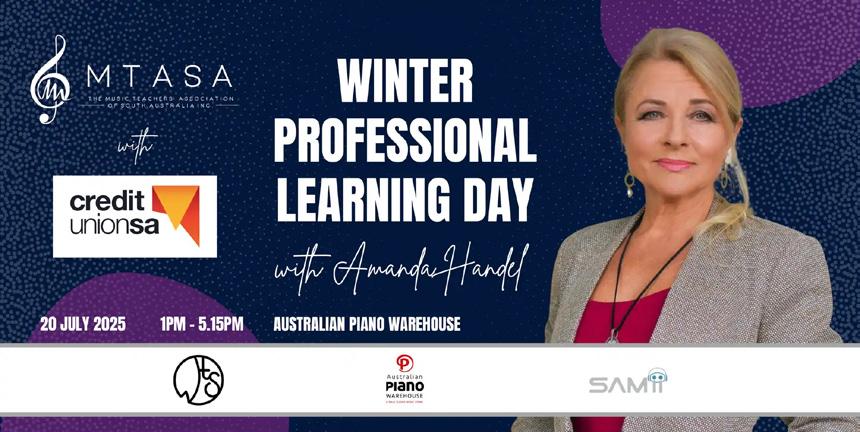

Sydney University, where she graduated with a compositional research Masters’ degree in 2004.
Published by Wirripang, her compositions represent a wide range of diverse and eclectic influences. She has composed numerous pieces for piano, a number of chamber works in various combinations — including string orchestra — as well as many solo works for classical guitar and woodwind instruments. Some of these appear in AMEB publications and syllabi. Amanda has written many works commissioned by various performers and arts organisations for festivals and recordings. She has released two original piano-based CDs: Ghosts & Angels and Gardens of Stone, collaborating with an electronic artist and a didjeridu player respectively. Both albums received excellent SMH reviews and extensive ABC radio airplay. Her music has been described as “hauntingly beautiful, creative, cohesive and compositionally advanced,” “engaging and evocative, seductive with a Spanish tinge, and a lot of grit.”
Beginning with classical piano, Amanda’s knowledge and experience now extends into
other world genres. As a vocalist, she led Canto Latino Quartet performing a repertoire of traditional Argentinean tango and Latin music for over ten years.
Having graduated with her Diploma in Hypnotherapy and Neuro-Linguistic Programming (NLP), her musical profile now has new dimensions of expertise — including certification as a BodyMinded™ (Alexander Technique) practitioner. These fascinating new fields of knowledge have become the cornerstone underpinning her musical life.
Currently Amanda is adapting these powerful tools and techniques to provide specialised studio teaching and intensive training workshops for musicians. Her vision incorporates writing a book elaborating on how to deliberately engage and optimise the subconscious mind in learning and performing.
Please visit: https://www.amandahandel.com https://www.youtube.com/@amandahandelmusic/ videos
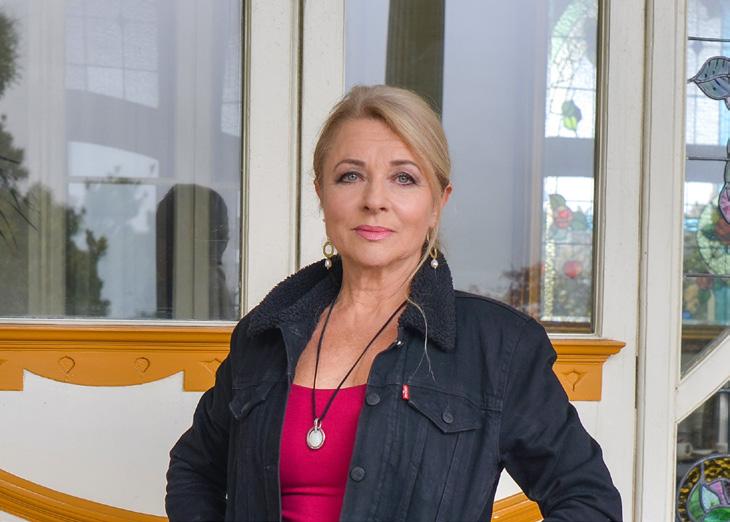

Personal Reflections on Dr Anita Collins’ brand new Live Courses by Samantha Penny
Dr Anita Collins has created two new live courses, designed to enhance our abilities to use data and information, as passionate music teachers, to create and defend our valuable musical mission.
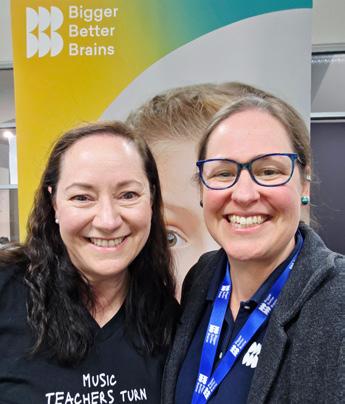
● Measuring Your Impact
● Accelerating Your Advocacy
Many of us have learnt about the incontrovertible neuroscience that shows why music learning is so impactful to the development of human beings, but now what to do with this information??? So much research and wisdom is quickly buried if those who know it are not empowered to get it out to the world in a meaningful and direct way that challenges the status quo and inspires lasting change in education practice. These courses endeavour to transform knowledge into power.
Coming into the ‘Measuring Your Impact Course’, we were asked to bring some data we had created ourselves as a starting point. These figures could be based on any number of things, such as past students who have gone on to do amazing things outside of Music, Literacy and Numeracy performance at a school, numbers of students
learning a musical instrument or other measures that show a rate of change in something. Data sets such as these are a point where we can begin to develop ideas for our individual advocacy projects. Working across three schools, (one public, two independent) I found myself considering the different music programmes and how they are unique to their particular school culture. I became inspired to measure data in each workplace. For example, at one school I began a middle/senior school string ensemble focusing on rock/pop and non-mainstream string repertoire. I developed this ensemble with the students who were learning stringed instruments but not actively or willingly participating in orchestra because their personal musical preferences were not being met. What I am interested in measuring is the outcomes for students in this ensemble since its inception four years ago - How well is it meeting the musical and developmental needs of these students? Is it increasing student participation in other ensembles? How is it measuring up against its original purpose? Has it increased the student’s well being and sense of belonging?
In this course, we learnt to tell stories to convince and influence people who need to hear our message, and how best to amplify our impact and outcomes we have achieved in a way that has meaning to the listener. We learnt about research strategies including, how to consider a problem, hypothesise, question, explore and experiment in order to discover new information and share our findings. We looked at different types of measurement and how to achieve this through personal research, and considered how to maximise impact with this new information. We learnt about deciphering what research is actually telling us through various examples.
On the second day, the course ‘Accelerating Your Advocacy’ taught us about the different ways in which we can advocate for music learning and the various pathways to publicly broadcast .
A couple of important points really stuck with me:
● Timing is important. We often don’t advocate early enough. We must keep families in the loop about what we have planned for their children before they reevaluate financial priorities. Consider how we introduce ourselves to new families and regularly

communicate about our positive observations and research - For me, this might mean I send emails to parents more often to keep them involved in what I am working on, let them know early about performances and the cognitive benefits of being actively involved. Then with further emails like ‘we are so excited to show you what we have been learning…’ or ‘our students have been working hard on a special project and can’t wait to share’. After the event, I will tell them about the progress their child made through the experience- It’s about creating that hype around your projects.
● “7 hours, 11 interactions, 4 locations”. Dr Anita Collins said that this is how long it takes for a message to get through to the listener. This really made me think about how often I need to advocate and where/when is the best time or place to do it.
There are opportunities everywhere to start advocating for Music Education where you work. At one of my schools they hold an annual Music Showcase. Their compact Performance space makes it hard to quickly switch between acts. To streamline the show in between musical items, I arranged for videos to play about the benefits of music learning. I had a conversation with my line manager about this in the weeks before the show and I emailed him some suggested media. My idea was met with enthusiasm. I explained that the time taken to reset the stage is a perfect moment
where you have your target audience poised to listen to your message. What opportunities do you have to increase your communication? We used a combination of videos, photo montages, testimonies and interviews that created a powerful and lasting message that may increase retention and growth in the school’s music program. I am still gathering responses from audience members about the effectiveness of these advocacy tools. But so far, feedback has been very positive and insightful. I wonder how many times we will need to repeat the message before there is lasting attitudinal change. More data for me to collect and the cycle of learning continues.
We finished our Advocacy course by practising our skills within different types of media. Writing emails, telling stories to each other with engaging body language, writing social media posts and constructing attention-grabbing sentences were some of the valuable activities we worked through together. I particularly enjoyed creating a ‘Convo Cards’ series, where we had to insert short and direct sentences to communicate our message and create curiosity.
It has always been inspiring to undertake professional learning with Dr Anita Collins, and I look forward to practising my new advocacy skills right away. Thank you to the Bigger Better Brains team and the music faculty of Trinity Grammar in Melbourne for hosting a wonderful two days and continuing to inspire change.
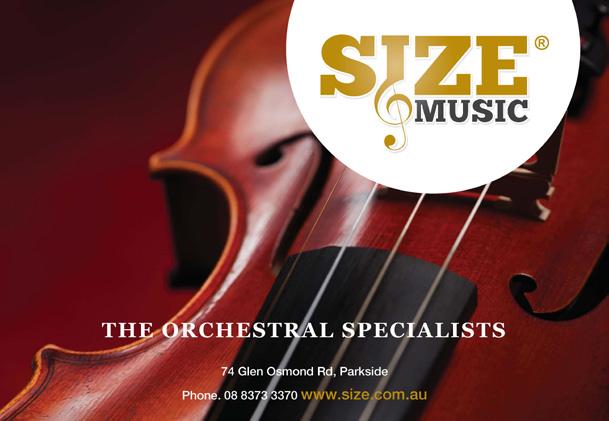

By Ariel Guo
On January 17th, I had the privilege of attending a master class with Dr. Dylan Henderson, presented by MTASA. It was an incredibly valuable and eye-opening experience that deepened my understanding of musical interpretation and performance.
Dr. Henderson’s teaching style is precise, insightful, and deeply musical. He went through every phrase of the piece with great care, explaining not only what to play, but why and how to shape each musical idea. His ability to draw attention to subtle details such as phrasing, tone, and articulation helped me hear and approach the music in a completely new way. The way he communicated these ideas made everything feel clear and achievable, even when the concepts were complex.
One of the most memorable aspects of the class was the way Dr. Henderson encouraged me to think beyond just playing the notes. He challenged me
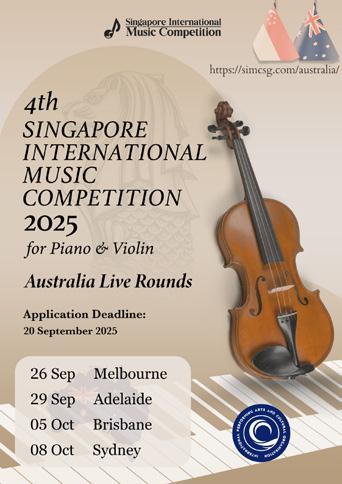
each phrase, and to connect more deeply with the music itself. This helped me feel more confident and expressive in my playing, and I now approach practice with a stronger sense of purpose.
This master class has made a lasting impression on me. I learned so much from Dr. Henderson’s feedback, and I am now working to apply the important details he shared to my other pieces. I’m truly grateful for the opportunity to learn from such an experienced and inspiring teacher, and I know this experience will continue to influence my playing in a meaningful way.
https://simcsg.com/australia/
Adelaide Live Round: 29th September - 1 October (for Piano Solo and Violin Solo)
The prestigious Singapore International Music Competition (SIMC) is launching its Australia Live Rounds in 2025, bringing a world class performance and competition platform to talented young musicians across the country. A celebration of musical excellence, the SIMC is considered as one of the most highly regarded youth music competitions in the Asia Pacific region and its entry into Australia marks an exciting new chapter for aspiring performers nationwide.
The Australia Live Rounds aim to make this global stage accessible to young musicians residing in Australia. Now open for registration, the live rounds are scheduled to take place in Melbourne, Adelaide, Brisbane, and Sydney between 26 September to 10 October. Open to pianists and violinists under the age of 30, the competition offers young musicians and artists the chance to showcase their talent on a global stage right here at home.
Selected top performers will also be invited to perform at the highly anticipated Gala Concert Ceremony in Singapore. Previous winners of SIMC have gone on to perform internationally and gain admission to leading conservatories around the world.
For more information and to register for the Australia Live Rounds, please visit: https://simcsg.com/australia/ or contact us at: info.australia@simcsg.com.

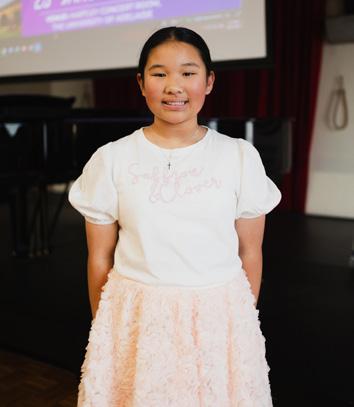
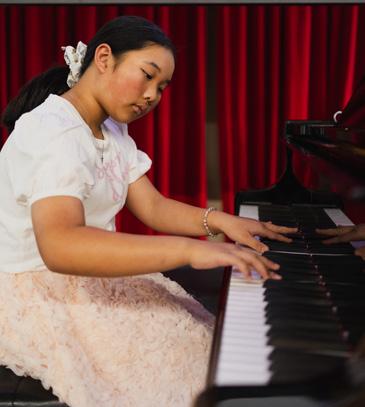
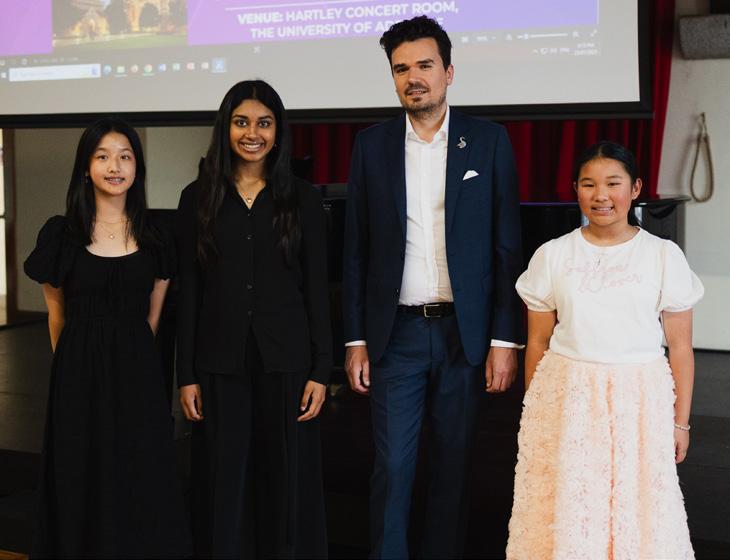

By David G. Miller
Students taking an exam are likely to be young, inexperienced and quite possibly terrified! Therefore, the pianist in the room with them performs a vital role in supporting and guiding the student, to ensure they enjoy the experience and produce their best possible result.
As a professional musician, an experienced collaborative pianist can also provide personalised advice on performance and collaboration techniques and an in-depth understanding of the repertoire. Developing these skills in young students helps them to become more sensitive, confident and effective performers, in whatever career they eventually decide to pursue.
Providing support and security on the day
Examinations can be a stressful experience for young students. It can be a great comfort to have a familiar face across the keyboard; someone on the student’s side who provides moral support during the exam.
A professional collaborative pianist is also trained to be flexible and adaptable. They can accommodate changes during a performance – whether they be intentional variations in interpretation or actual mistakes. The show must go on!
Improving ensemble technique
While a teacher’s role is to develop the student’s technical competence and musical ability, the young student may have had very little practical experience playing with other musicians. Working with a collaborative specialist provides an overview of the complete musical piece, including the piano part, cultivating the practical ensemble skills of tuning, balance, signalling and partner communication.
While examiners primarily assess the technical and musical skills of a student, the quality of the collaboration and ensemble is likely be noticed. A musical partnership that is secure and comfortable looks much more professional.
Providing a valuable learning experience
In preparing for exams, collaborative pianists work with children, teenagers and young adults who have not necessarily committed themselves to a

life as a professional musician, or possibly have no intention of doing so. However, parents will know that exams are important opportunities to develop young skills such as discipline, goal achievement, self-confidence, teamwork and musical appreciation.
As a professional consultant, the collaborative pianist will work with the student’s teacher to get the very best from the student, and satisfy, if not exceed, the expectations of the parents. Just as your GP will recommend a medical specialist, your teacher should refer you to a pianist who is a specialist in musical collaboration.
Establishing a trusting relationship
In preparing for an exam, students will need time to develop a relationship of trust and respect with their collaborative pianist. The rehearsal schedule should take into account the experience of the student and the challenges of the repertoire, both technical and ensemble.
Rather than leaving it to the last minute, early rehearsals with the pianist are invaluable in the learning process, even if the student’s technique is not yet secure. Ensemble and tuning will inevitably improve as a result.
Taking an examination should be an exhilarating and fulfilling event for a young musician. While working with a professional collaborative pianist cannot guarantee better exam results, it helps to ensure the best possible preparation and

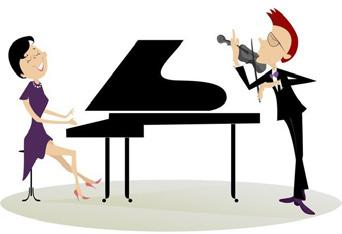
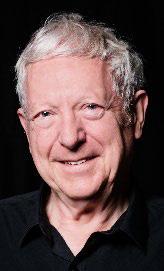
performance. The confidence, perspective, practical skills and musical insight gained by working with an experienced musical partner encourages enjoyment, satisfaction and valuable learning for the future.
David G. Miller AM is widely recognised as one of Australia’s leading collaborative pianists, chamber musicians and educators. Following his retirement from fulltime teaching at the Sydney Conservatorium of Music, David continues to provide collaborative performance training and promote collaborative piano as an independent art form worthy of professional recognition and academic research. To further this goal, he acts as the National Co-ordinator of the Australian Guild of Collaborative Pianists.
The Australian Guild of Collaborative Pianists (AGCP) was established in 2024 as a forum for pianists, piano teachers, examiners, academics, students and others involved in collaborative performance activities around Australia to share information, experiences, thoughts, ideas and opinions. The association also establishes connections with related organisations around the world and promotes the interests of its associates to examination boards, music teachers’ associations, music societies, schools, conservatoriums and universities, the media, government authorities and the general public. If you would like further information about the AGCP, or are interested in becoming an associate, please visit www.agcp.au or scan the QR code:


Wendy Heiligenberg and Rodney Smith
The first of our performance days for 2025 was a great success. In collaboration with the Australian Music Examinations Board (AMEB) and with the kind support of the State Manager, Melisande Thompson and the University of Adelaide, the MTASA young performers had the great privilege and honour to perform on the Elder Hall stage.
It is, as you know, quite a challenge to be asked to perform in a large concert hall- Elder Hall seats up to 600 people. The young pianists, of course play on a strange instrument, oftentimes much bigger than their instrument at home or at the teacher’s studio. Our Performance Days offer a golden opportunity to gain experience in performing without the stress of a competition or an exam, and our audience consists of well-wishers, teachers and family members. These events are valuable preparation for those more stressful occasions, and both the performers and we teachers can assess their preparation and locate areas that need more attention.
In addition to this, our Reviewers offer valuable feedback. Thanks go to all of our Reviewers, many of whom are Committee members, but special thanks to others who sacrificed their valuable time to support our young artists.
There were 3 sessions in all, the last session focussing on Diploma students. Thanks go to Rodney Smith, OAM, Rosanne Hammer, Wendy Heiligenberg, Yong Cheong Lye, Monika Lakzofy, OAM, and Yundi Yuan reviewed students’ performances.
One thing occurred to me in the first two sessions, which consisted of 26 performances. Memorizing a work is the best way to really know it well. There is always the dilemma of “shall I play from the music, or can I rely on my memory?” Some students in these performances have only half memorized a work, and play certain sections from memory, other sections from the music. I have always found this rather risky, and generally plump for playing either with or without the music. Negotiating the traps of trying to find my way back into the text can add even more stress and send me plunging down the rabbit hole.
Wendy Heiligenberg
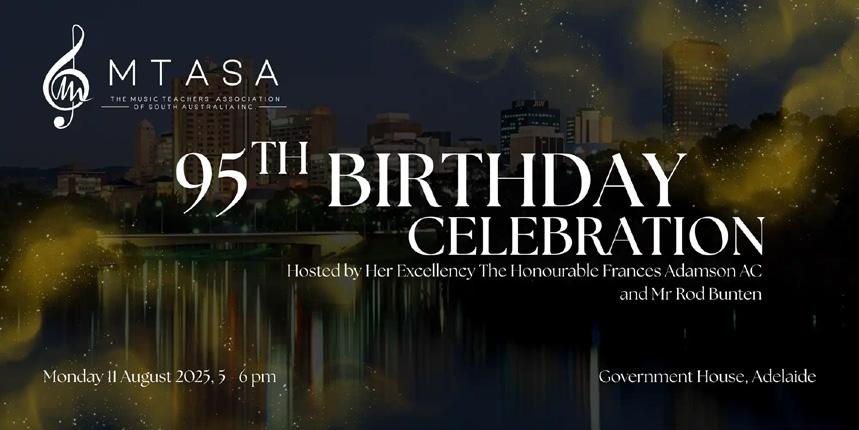

Rodney Smith.
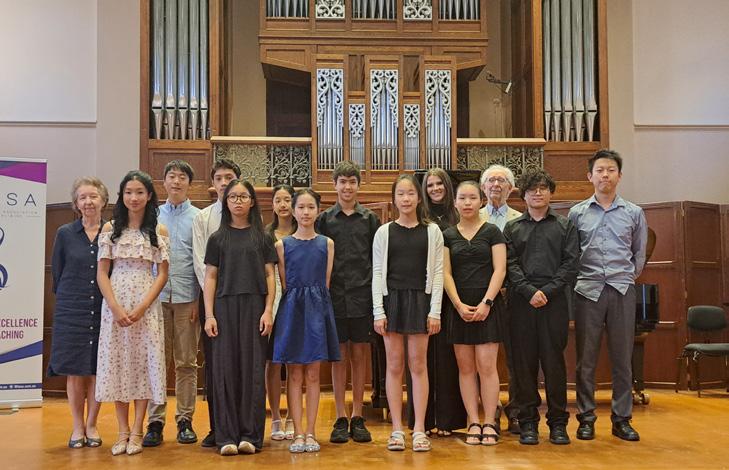
This was the inaugural session of something new for MTASA’s Concert Performance Days. All performers were preparing for AMEB Level 3, either Certificate of Performance, or Associate in Music, Australia or Diploma in Music, Australia (AmusA or LMusA).
I had the pleasure of sharing the Reviewer tasks with my colleague Monika Laczofy, OAM, as we both have lengthy examining experience at these levels. However, as members will know, our task was not to examine but rather to review and that involved commentary concerning what we heard without particular reference to the exam levels concerned. Indeed, the exams were not mentioned on the program at all. So our reviews were not quite the same as we might have written had the performers been undertaking an Examination.
We were reviewing using solely the music, its challenges and demands, its moods and colours, as a template against which to form our views.
With everything from Bach to Khachaturian by way of Mozart and Arensky, the thirteen piano items included some impressive pianism. Indeed, the session probably comprised the highest overall performance level ever attained by MTASA’s Concert Performance Days over the years. But these were still issues to address of course, and my closing remarks indicated that although there were many lovely and special moments the question of where these moments were placed in each performance sometimes required a little further discussion. That said it is to hoped players were all assisted by the experience and that they continue successfully towards their chosen examinations.

Wendy Heiligenberg

Last week, I spent a delightful hour talking to Edith Salzmann, who has been the Associate Director of the Open Music Academy of the University of Adelaide since 2024. Edith is a German/New Zealand cellist with an international reputation as a soloist, chamber musician and pedagogue.
She is passionate about providing a broad education to our up-and-coming young musicians.
The Academy’s vision is to offer additional opportunities for young musicians to develop their skills based not on their age, but on their ability and passion for music, allowing them to reach their full musical potential.
The Academy offers various programmes, and Edith is keen to broaden these programmes further, to utilize the many possibilities of Music Education in Adelaide.
What I perceived to be the two most interesting for our MTASA members was the new and exciting Performance Programme, which enables students with private teachers to take advantage of workshops, masterclasses and concerts involving Conservatorium Staff, National and International Guest Artists offering a mix of chamber music and solo events, that can help them progress in an encouraging environment. Edith spoke of opportunities to pick the artists’ brains- e.g. “How do I practise this tricky passage?”
A Chamber Music Programme provides expert tuition in ensemble performance, with concerts and competition preparation for students aged 10-18.
In our private studios, it is a difficult for us to provide students with these great opportunities, where students may broaden their knowledge, perform and mingle with like-minded young musicians. (MTASA Performance Days are an example of this enrichment of the performing experience.)
The Academy provides other programmes, and these are centred around one-on-one lessons. The Academy Programme provides a pathway to tertiary study and a career in music and mixes lessons with masterclasses and concerts, group sessions, workshops, lectures etc.
The Discovery Programme provides beginner and intermediate students with one-on-one lessons, interactive classes, workshops and concerts. There is also a Young Strings Programme, which is an intensive programme for young string players, based on the methods of Suzuki, Zweig and Rolland.
The Academy also supports music teachers and educators across South Australia, with its Music Connection Days, (Activities tailored for schools, at schools), Music Discovery Days (Activities and Lunchtime Concerts on the University Campus), and Regional Tours (Activities and performances to regional schools).
There are a range of scholarships and bursaries available, including merit-based scholarships and bursaries for regional students and support for families facing financial hardship.
For further information, please email openmusicacademy@adelaide.edu.au.

Some music-related organisations useful for South Australian
5MBS
RADIO 5MBS: MUSIC BROADCASTING SOCIETY OF SA www.5mbs.com
+61 8 8346 2324 manager@5mbs.com
4A River Street, Hindmarsh SA 5007
ABODA
Australian Band and Orchestra Directors’ Association (South Australia) ABODA SA www.abodasa.com.au info@abodasa.com.au
PO Box 327, Walkerville SA 5081
President: Michael Degenhart
ABRSM EXAMINATIONS
The Associated Board of the Royal Schools of Music (ABRSM) www.abrsm.org
+44 20 7636 5400 (UK)
4 London Wall Place, London EC2Y 5AU
SA Rep.: Anastasia Chan +61 423 282 589 abrsmsa@hotmail.com
ACCOMPANISTS’ GUILD
Accompanists’ Guild of SA Inc. www.accompanists.org.au
President: Gina Macri +61 407 394 714 ginamacri88@hotmail.com
ADELAIDE BAROQUE www.adelaidebaroque.com.au +61 414 875 227 generalmanager@adelaidebaroque.com.au
General Manager: Rob Nairn 11 Boronia Street, Klemzig SA 5087
ADELAIDE EISTEDDFOD
Adelaide Eisteddfod Society Inc. www.adelaideeisteddfod.com.au
Secretary: Jane Burgess secretary@adelaideeisteddfod.com.au info@adelaideeisteddfod.com.au
ADELAIDE HARMONY CHOIR www.adelaideharmonychoir.com.au +61 404 448 194 adelaideharmonychoir.info@gmail.com PO Box 937, Kent Town SA 5067
Secretary: Margaret Hosking
ADELAIDE PHILHARMONIA CHORUS www.philharmonia.net apcchoir@gmail.com
PO Box 6008, Halifax Street, Adelaide SA 5000 www.facebook.com/adelaidephilharmoniachorus/
ADELAIDE YOUTH ORCHESTRAS www.adyo.com.au/ +61 8 8361 8896
PO Box 13064, University of Adelaide SA 5005 adyo@adyo.com.au
AIR
Australian Independent Record Labels Association (AIR) air.org.au
+61 3 9329 7105
187 Peel Stret, North Melbourne VIC 3051 CEO/CFO: Maria Amato maria@air.org.au
AMEB
Australian Music Examinations Board (AMEB) SA & NT www.adelaide.edu.au/ameb/ +61 8 8313 8088 ameb@adelaide.edu.au
Lvl. 1 Hartley South, University of Adelaide, Kintore Avenue Adelaide SA 5000
ANATS
Australian National Association of Teachers of Singing (ANATS) anats.org.au/sant-chapter +61 435 300 070 admin@anats.org.au
ANZCA
ANZCA Examinations www.anzca.com.au +61 3 9434 7640 admin@anzca.com.au PO Box 3277, Nunawading Business Hub VIC. 3131
APRA AMCOS
The Australasian Performing Right Association (APRA AMCOS) apraamcos.com.au
+61 8 8331 5800
Manager, Writer Services: Alana Jagt Suite 29/8 O’Connell Street, North Adelaide SA 5006
ASME
Australian Society for Music Education, SA Chapter Inc. https://asme.edu.au contact@asme.edu.au
C/- Educators SA, Education Development Centre, Milner Street, Hindmarsh SA 5007 Chairperson: Kate Goodes +61 481 188 587
AUSTRALIAN STRINGS ASSOCIATION
Australian Strings Association (AUSTA): SA Chapter https://www.austa.asn.au/chapters/sa/ President: Bethany Nottage sapresident@austa.asu.au +61 8 8276 0359
AUSTRALASIAN DOUBLE REED SOCIETY www.adrs.org.au
Contact: Caryl Lambourn caryl.lambourn@gmail.com +61 450 163 487
BALAKLAVA EISTEDDFOD
Balaklava Eisteddfod Society www.balaklavaeisteddfod.org.au info@balaklavaeisteddfod.org.au PO Box 253, Balaklava. SA 5461 Administration: Trish Goodgame +61 417 891 834
ELDER CONSERVATORIUM
Elder Conservatorium of Music https://able.adelaide.edu.au/music/ +61 8 8313 5995 music@adelaide.edu.au Level 9, Schulz Building, University of Adelaide, SA 5005
ELDER HALL, ELDER CONSERVATORIUM OF MUSIC www.music.adelaide.edu.au/concerts/ +61 8 8313 5995 concertmanager@adelaide.edu.au
FLUTE SOCIETY
The Flute Society of South Australia, Inc. flutesocietyofsa.org admin@flutesocietyofsa.org flutesocietyofsa@gmail.com PO Box 3208, Norwood SA 5067
KODALY
Kodaly Music Education Association of SA www.kodalysa.com +61 405 066 469 sa@kodaly.org.au
6 Baroota Avenue, Rostrevor SA 5073
LIVE MUSIC OFFICE livemusicoffice.com.au info@livemusicoffice.com.au
John Wardle +61 2 9935 7875 john@livemusicoffice.com.au
MT GAMBIER EISTEDDFOD www.backstageinc.org.au
Secretary: Maxine Chalinor +61 417 081 101 maxinechalinor48@outlook.com
MUSICIANS’ UNION Musicians’ Union of Australia https://musiciansunion.com.au +61 8 8272 5013 musosa@bigpond.net.au
U4 23A King William Road, Unley SA 5061
Adelaide Branch Secretary/Treasurer and Federal Branch Treasurer: John Callisto +61 412 336 121
MUSIC SA musicsa.com.au +61 8 8104 1101 info@musicsa.com.au
PO Box 3004, Rundle Mall SA 5000
ORFF SCHULWERK
Orff Schulwerk Association of SA www.osasa.net info@osasa.net
RECITALS AUSTRALIA www.recitalsustralia.org.au info@recitalsaustralia.org.au
Administrator: Maria Tynan +61 8 8236 7488 admin@recitalsaustralia.org.au PO Box 6454, Halifax Street SA 5000
ST CECILIA
St Cecilia Examinations Intl. Pty. Ltd. www.st-cecilia.com.au 1800 675 292 info@st-cecilia.com.au
PO Box 938, Launceston Tasmania 7250 Director: Matthews Tyson +61 438 628 822 mstyson@st-cecilia.com.au
S.A. BAND ASSOCIATION
South Australian Band Association Inc. www.sabandassociation.org +61 417 804 001 secretary@sabandassociation.org
PO Box 309, North Adelaide SA 5006
President: Bruce Raymond bruceraymond46@gmail.com
SA MUSIC CAMP ASSOCIATION www.samusiccamp.com.au admin@samusiccamp.com.au
SOCIETY OF RECORDER PLAYERS
The Society of Recorder Players SA Inc. www.facebook.com/recorderplayerssa/ +61 410 109 135 srpsainc@gmail.com
President: Neville Pope +61 417 823 537 npope@bigpond.net.au
26 Clarence Street, Blackwood SA 5051
UKARIA
www.ukaria.com
+61 8 8227 1277 info@ukaria.com
Suite 911, Lvl. 9, 147 Pirie Street, Adelaide SA 5000 Venue: 119 Williams Road, Mount Barker Summit. SA 5251
